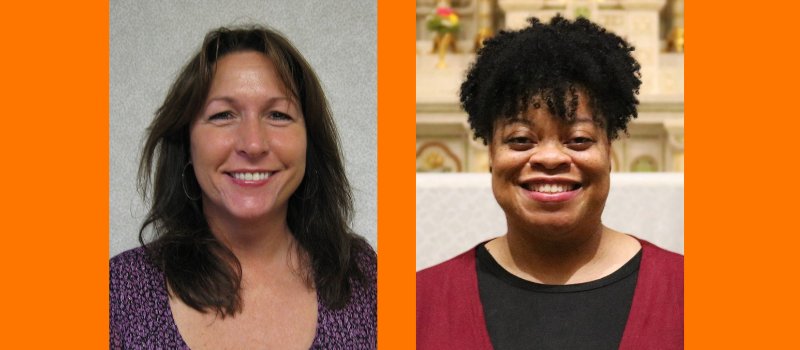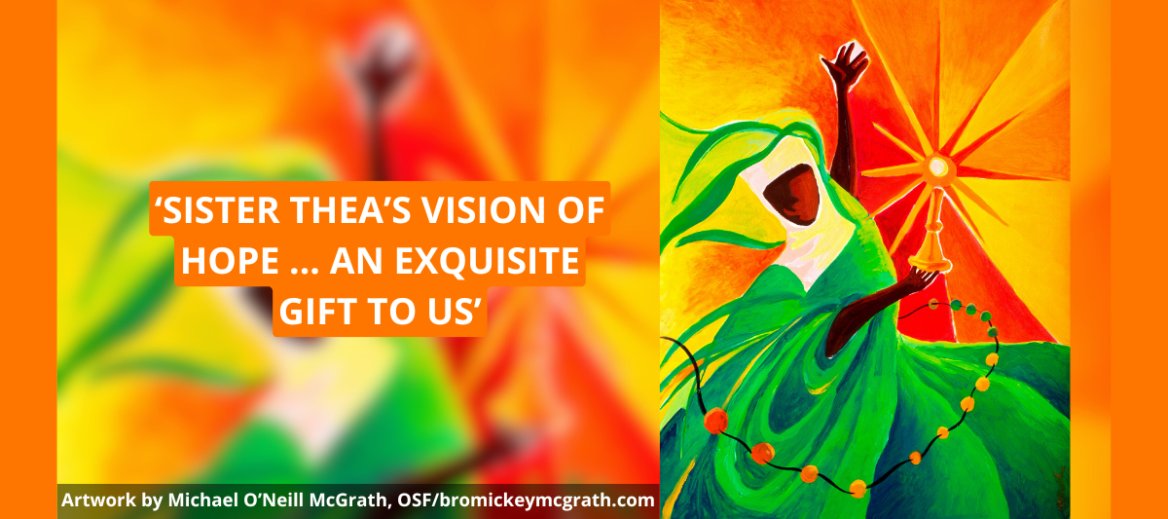By Peggy Johnson, Ph.D., FSPA affiliate
The sounds of teasing and laughter, the curiosity of books, the rapture of music, the joy of adventure, the embrace of family, the devotion to and intimacy with God: In childhood, Servant of God Sister Thea Bowman, born Bertha Elizabeth, was happily wanted and deeply loved. Home, the central place that formed Sister Thea, meant that she never felt alone, never was without hope, never felt unloved, never experienced invisibility, never felt limited. One birth announcement noted that “Bertha Elizabeth already wields the scepter of a queen ruling with the power of innocent sweetness in the hearts of her parents and all who come within her domain.” Prophetic words.
Sister Thea’s upbringing is consequential because it juxtaposed a deep division between white and Black neighborhoods in central Mississippi that continued long into the second half of the 20th century. Sister Thea’s home state was considered one of the most oppressed in the nation in terms of racial discrimination, often with brutal consequences. Sister Thea was alarmed by the Black community’s belief in their own subservience, their own lesser humanity, a perspective that had been ingrained in them for generations. As an adult, she discovered that white people across the nation — even those in her own midst — held on to those same beliefs. So a calling of teaching and preaching to transcend racism and hate was born in her.
It goes without saying that Sister Thea faced suffering in her 52 years, including racial discrimination, the loss of her parents and, ultimately, cancer. Clinging to hope got her through difficult times. Sister Thea’s vision of hope, grounded in her childhood, is an exquisite gift to us: She never believed hope could be separated from love. It is this vision of the coexistence of hope and love that completely won people over: They witnessed the unrelenting beauty of her dedication to creating a fuller humanity.
I believe Sister Thea knew that hope without love tears us apart because we ground our hope in the expectation of positive outcomes, usually regarding things we cannot control; things beyond ourselves. We wish for things to change, we pray for things to change, and we think that perhaps strengthening our faith or shouting our upset will lead to the change in our world that we desire.
Yet Sister Thea knew that a hope grounded in love requires us to look within, to examine our own inner movements and perspectives so we can understand our part in the hopelessness of discrimination, separation, isolation and hate. Sister Thea knew there are many ways of dying, and perhaps the worst of them is to continue living utterly without awareness that change only comes through love in action, beginning with ourselves. Sister Thea lived her entire life dedicated to avenging discrimination and hate. That perseverance, that greatness, was possible only because Sister Thea knew that love of self, love of God and love of all — even those with different values — is a necessity because struggle is not a final destination.
It is because of Sister Thea’s remarkable ability to challenge societal wrongs in the spirit of hope and love that Dr. Shatonda Jones, also an FSPA affiliate, and I have begun a year-long spiritual pilgrimage over Zoom through the FSPA Affiliation Office. The spiritual pilgrimage was launched on Dec. 29, as our way of honoring the day of Sister Thea’s birth. The year-long pilgrimage continues on the first Sunday evening of each month as participants read, discuss and ponder Sister Thea’s life and work. It is our desire for this group of seekers to be transformed in mind and spirit by Sister Thea, to catch her radiance, to be affirmed by her voice, to understand her perspectives, and to find joy and hope, even in the midst of division and discontent.
While the seeds of our little pilgrimage project have just been planted, we already see the impact of hope. By learning about and leaning into the life and work of Sister Thea, we grasp the opportunity we are given to become “pilgrims of hope,” as Pope Francis wrote. And as pilgrims on our walk with Sister Thea, we take the time and the energy to not only experience renewal of mind and spirit but also to gain a deeper understanding of forgiveness for self and others. As Sister Thea knew, both renewal and forgiveness are impossible without the belief that the beauty of love undergirds all.

About Peggy and Shatonda
Peggy Johnson is a chaplain at Christ United Methodist Church in Rochester, Minnesota, and an associate chaplain at Gundersen Health System in La Crosse,
Wisconsin. Shatonda Jones, Ph.D., MA, CCC-SLP, CBIST and FSPA affiliate, is an associate professor and director of clinical education and MS Speech Language Pathology Program at St. Bonaventure University in New York.
If you would like more information about the Sister Thea Bowman Spiritual Pilgrimage, contact Dr. Shatonda Jones at drshatondaj@gmail.com.

